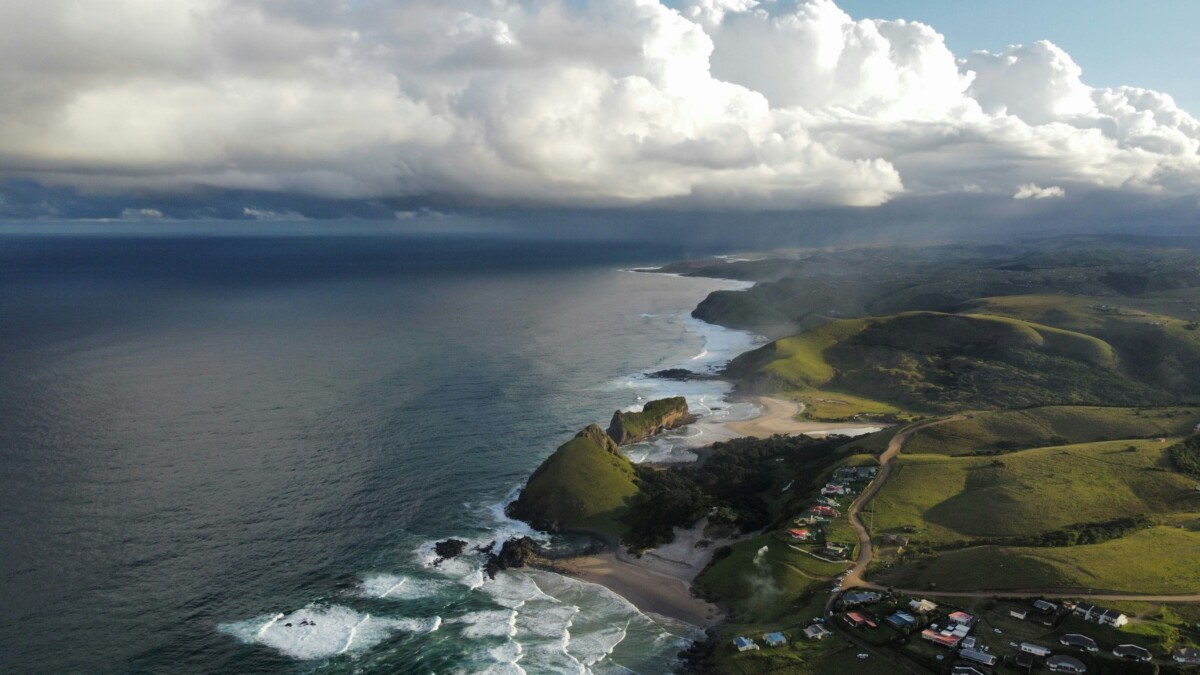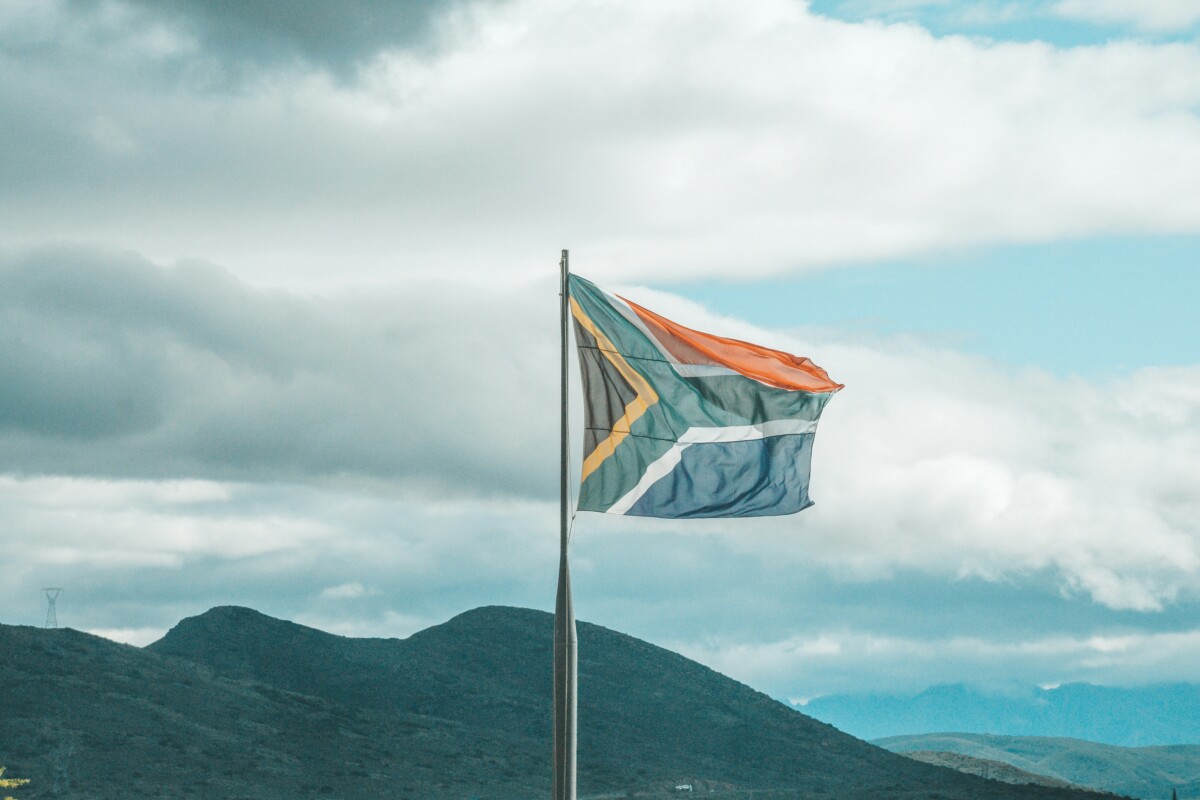Listen to the full podcast episode on YouTube, Spotify, and Apple Podcasts.
In this episode of The Responsible Edge, Tozama joins host Charlie Martin to share her deeply personal and professional journey—from becoming a mother at 15 and putting herself through university, to leading sustainability for some of South Africa’s biggest companies. But this isn’t just a story of corporate ESG frameworks—it’s about how self-sufficiency and environmental stewardship can be taught, lived, and scaled to create true change.
🌍 Sustainability as Survival: Lessons from the Eastern Cape
Raised in the rural Eastern Cape, Tozama grew up in a household where sustainability wasn’t a lifestyle trend—it was survival.
“My mum would insist on a vegetable garden, on collecting rainwater, and on sorting waste… She didn’t know she was teaching ESG. It was just how we got by.”
After becoming a mother at 15, Tozama defied societal expectations by putting herself through university, working two jobs, and later funding her siblings’ education. This drive—to move beyond poverty—ultimately led her into corporate sustainability roles at organisations like Eskom and Lonmin, where she connected her upbringing with the professional world of ESG.

💡 Turning ESG from Buzzword to Behaviour
Tozama’s lightbulb moment came when she realised that the same sustainability habits she’d learned at home could be applied in boardrooms, communities, and entire industries.
“At first, ESG was just a buzzword. But when I looked closely, I realised—this is what we’ve been doing all along.”
In roles that spanned community development, local economic empowerment, and corporate sustainability compliance, she witnessed the direct link between environmental awareness and social mobility—particularly in mining communities where pollution, poverty, and unemployment intersect.
🧑🌾 Community Power: Farming, Waste & the Value of Self-Sufficiency
Tozama’s ethos is clear: when individuals take control of their resources, they unlock resilience—not just for themselves, but for entire communities.
“If you recycle your water, grow your own vegetables, and collect your own eggs, you don’t just reduce waste—you build dignity and independence.”
Through initiatives that encouraged schools to grow their own food and reuse recycled water, she saw how sustainability could alleviate poverty and empower marginalised groups.
🌱 The Kids Are the Key: Building a Climate-Conscious Generation
A key theme from the show—and the accompanying Vox article discussed—was the power of early intervention.
In South Africa’s Western Cape, the Climate Change Champs programme is teaching children to see environmental responsibility not just as a duty, but as an opportunity. From medicinal plants to waste recycling, these young minds are already identifying as future climate scientists and entrepreneurs.
“We need to start them young. Because when a child knows their waste has value, they’ll change their household, their school, their entire community.”
Tozama envisions a future where sustainability is taught alongside literacy and numeracy—and where children from rural communities can become green economy leaders.
🚨 Class & Climate: The Realities of Environmentalism in South Africa
One of the most powerful takeaways from the episode is Tozama’s breakdown of how environmentalism is perceived across different socio-economic groups in South Africa:
-
For those in survival mode, sustainability feels like a luxury.
-
For those in stable jobs, it’s about resource efficiency—saving water and lowering bills.
-
For the wealthy, it’s something they often outsource.
This class-based perspective is critical in designing policies and funding strategies that are truly inclusive.

🤝 What Role Should the Global North Play?
The episode also tackled the often-uncomfortable question of how European or Global North institutions support sustainability efforts in the Global South.
Tozama’s view?
“If there’s someone willing to fund people becoming self-sustaining—who’s not trying to give handouts but to enable long-term change—that’s incredibly valuable. Especially in our villages, where poverty is visible in the air.”
But she’s also clear: support must be led by local insight, not imposed from afar.
✨ Magic Wand Moment: Make Ethics a Contractual Obligation
If handed a magic wand, Tozama would instil one change in the commercial world:
“Less greed, more compliance. If companies simply did what they committed to do—built the schools, delivered the jobs, protected the water—they would change lives.”
Her call is a potent reminder: ESG must be more than promises on paper. It must be monitored, enforced, and lived—especially in communities where corporate behaviour can make or break futures.
Final Thoughts
Tozama’s story is not just inspiring—it’s instructional.
It shows that real sustainability isn’t imposed from boardrooms or think tanks. It’s grown in vegetable gardens. It’s felt in the weight of a water bucket. It’s taught to children who turn recycling into purpose.
When ESG is grounded in personal experience and community wisdom, it becomes more than policy. It becomes a movement.
Sponsored by...
truMRK: Sustainability Communications You Can Trust
👉 Learn how truMRK helps organisations strengthen the credibility of their communications.
Want to be a guest on our show?
Contact Us.
The Responsible Edge Podcast
Queensgate House
48 Queen Street
Exeter
Devon
EX4 3SR
Recognition.
Join 2,500+ professionals.
Exploring how to build trust, lead responsibly, and grow with integrity. Get the latest episodes and exclusive insights direct to your inbox.
© 2026. The Responsible Edge Podcast. All rights reserved.
The Responsible Edge Podcast® is a registered trademark.
Sponsored by truMRK
© 2026. The Responsible Edge Podcast

